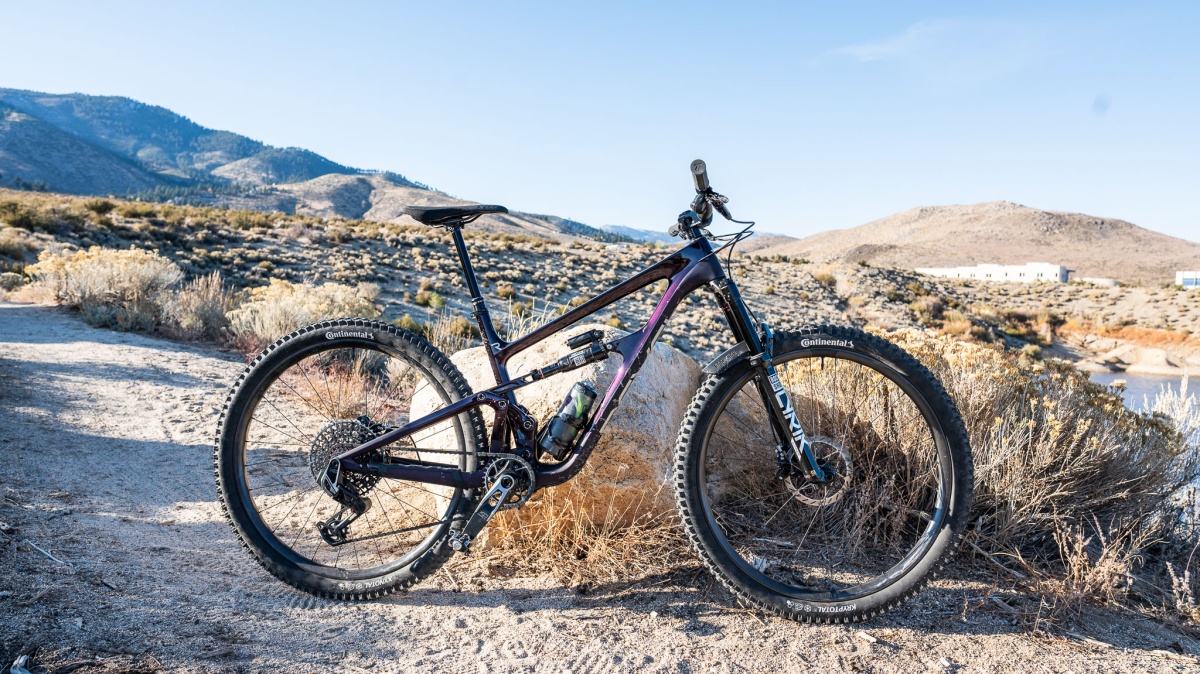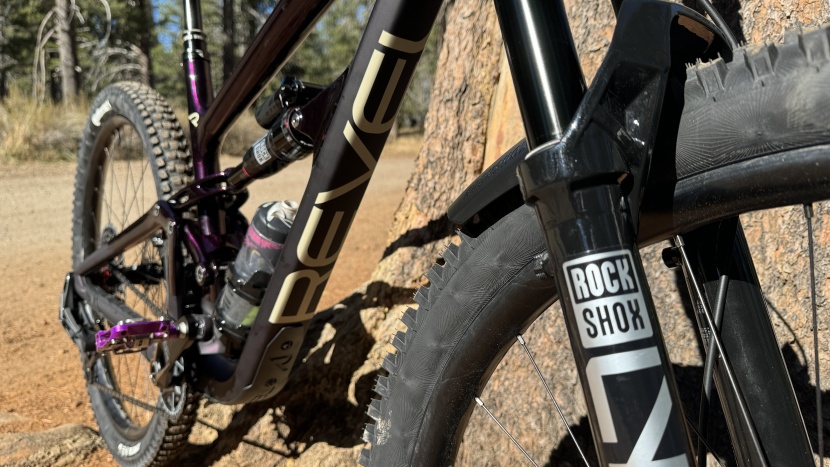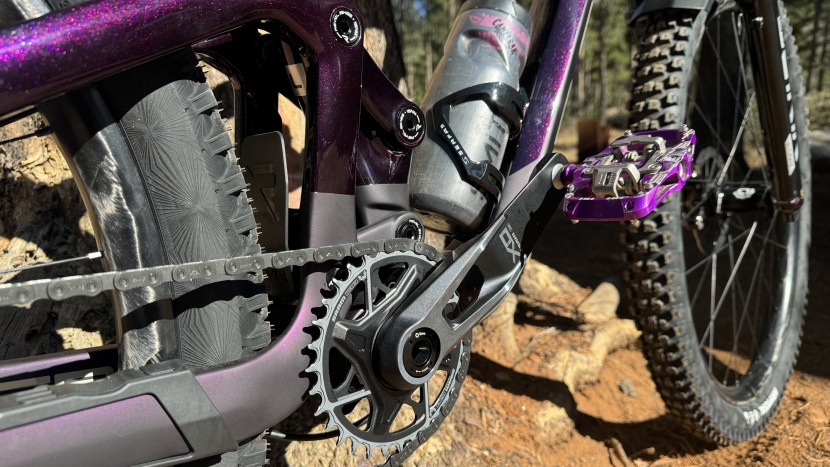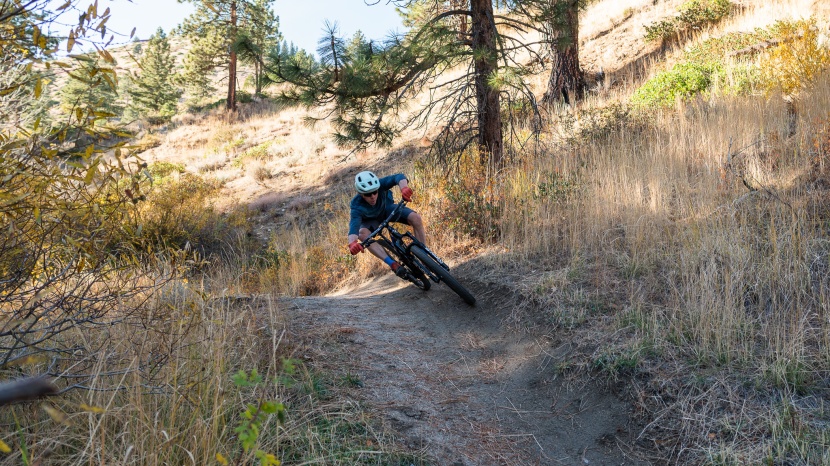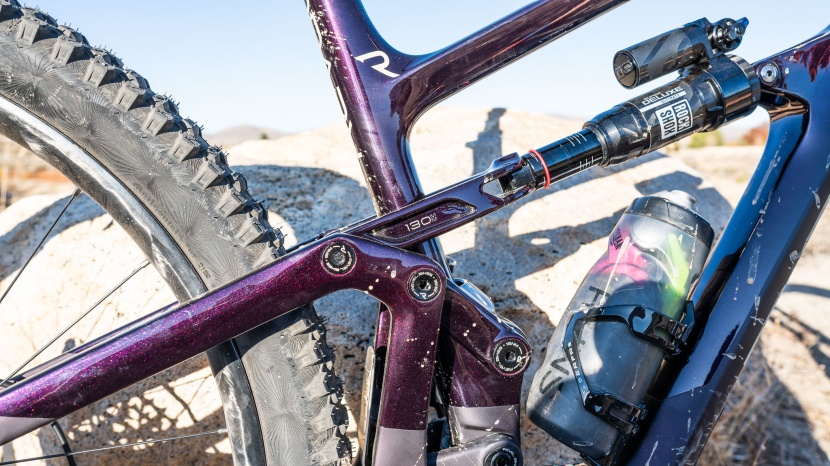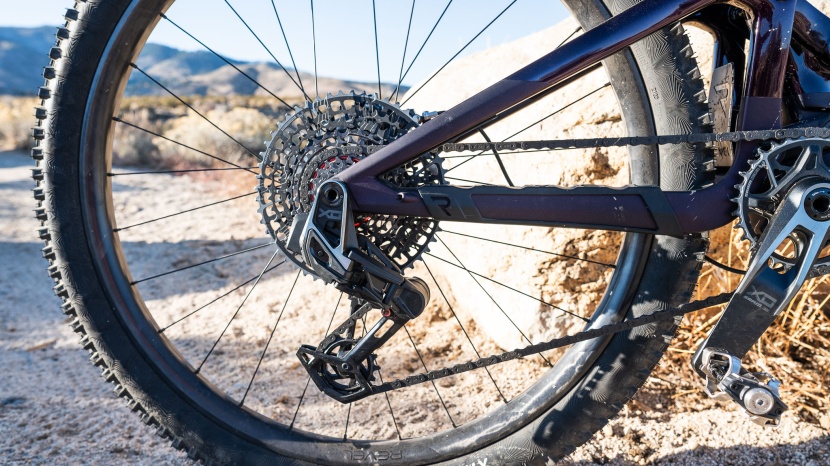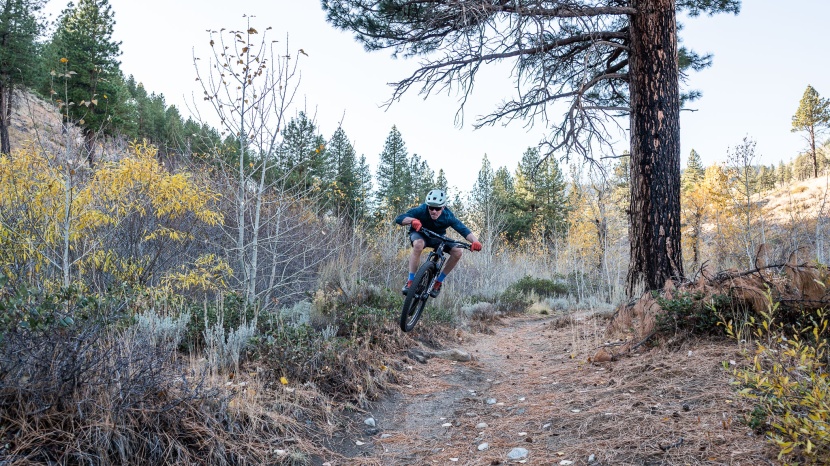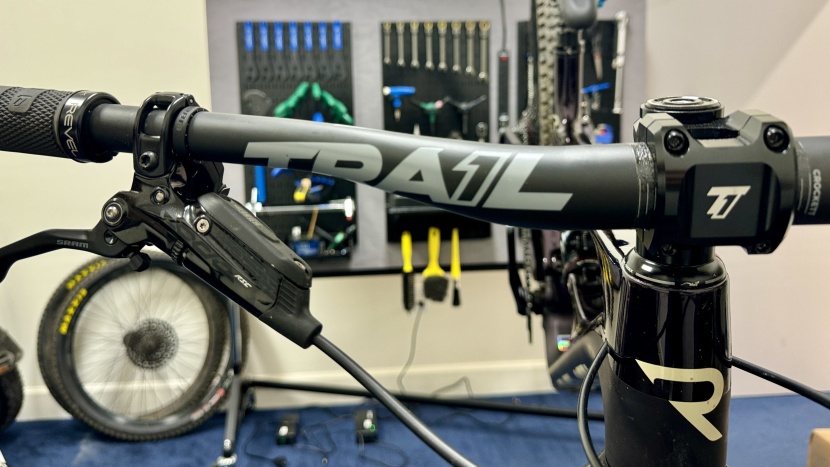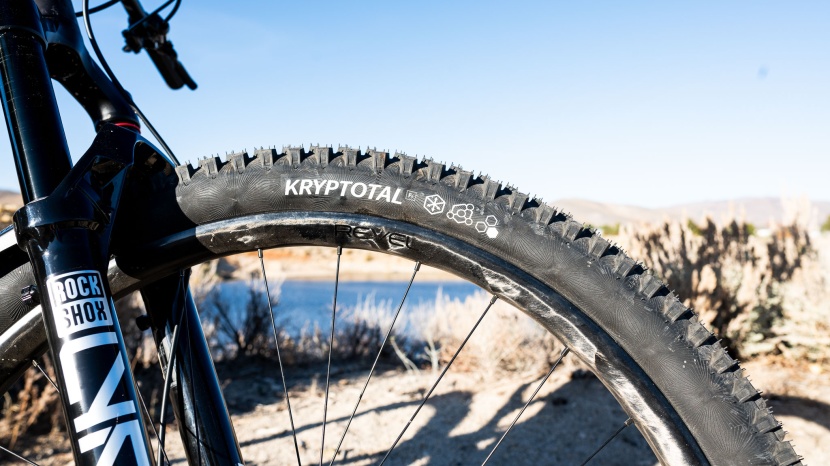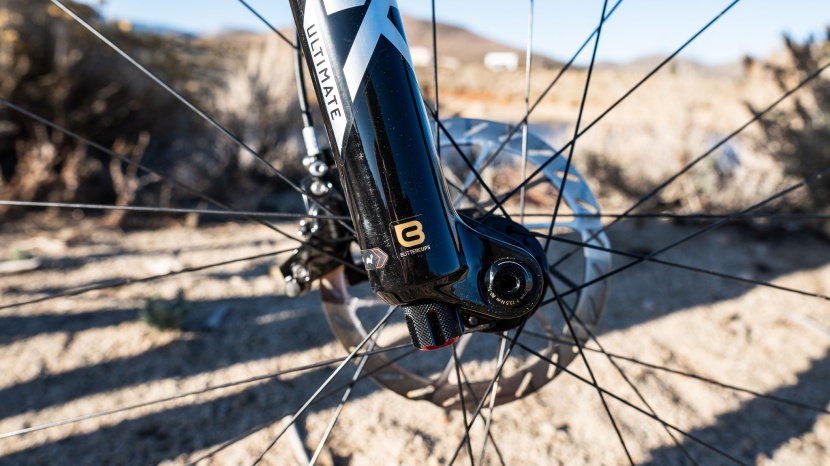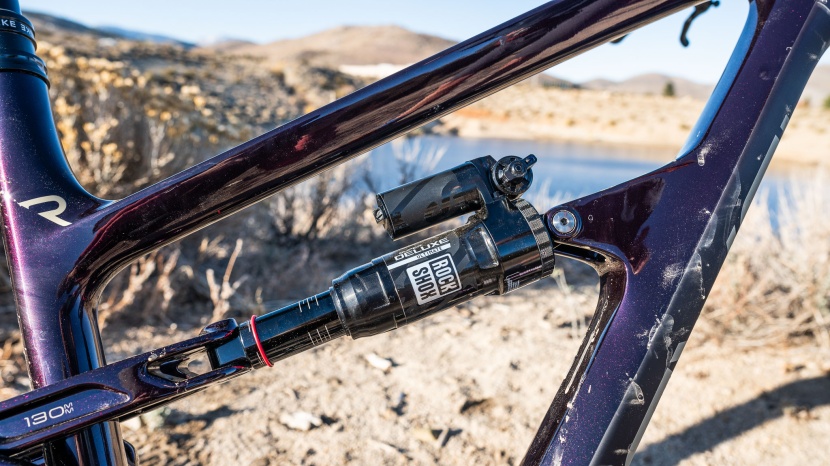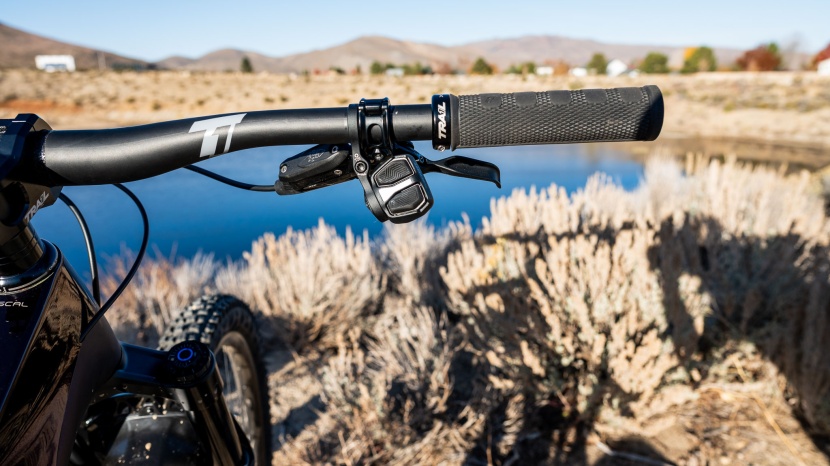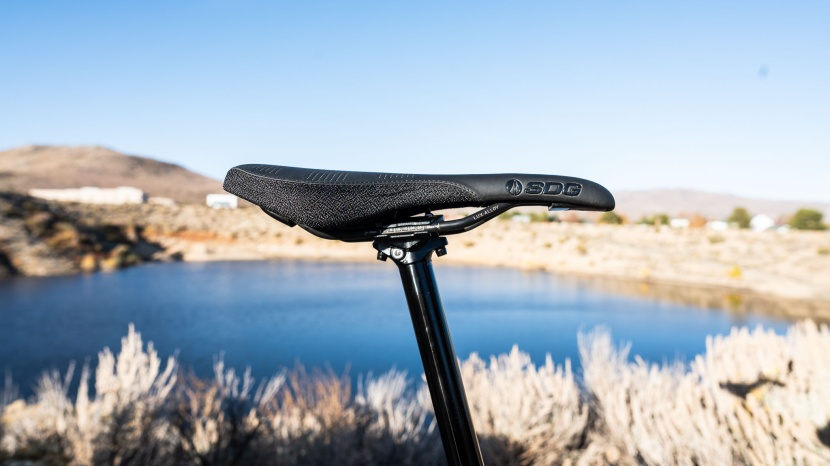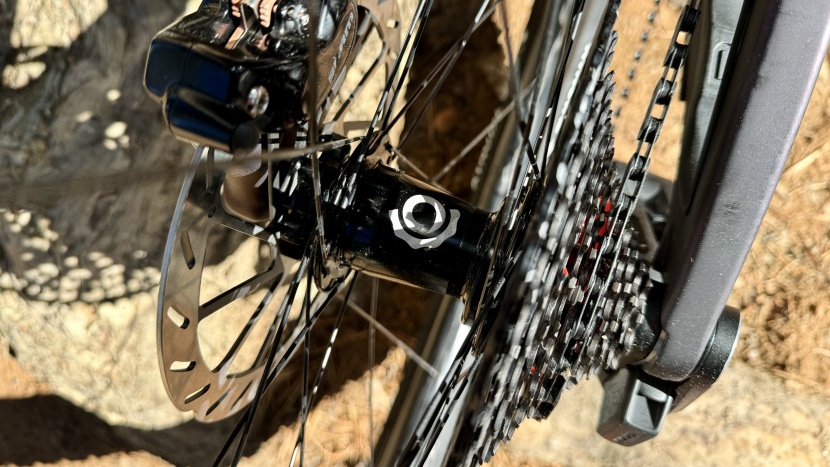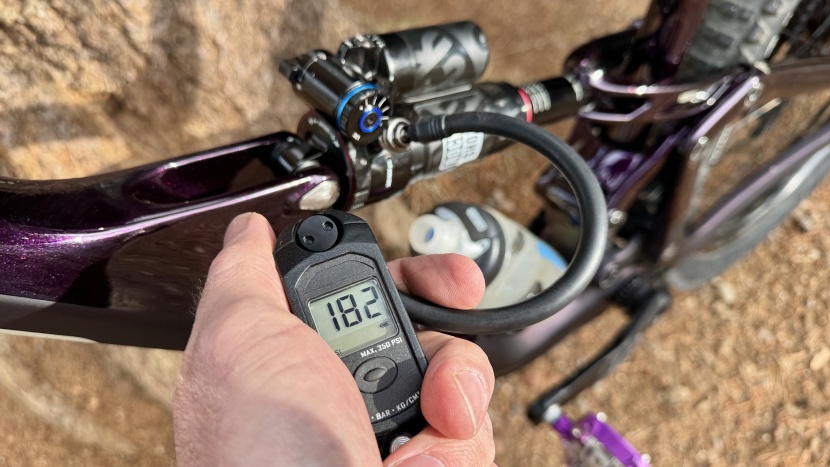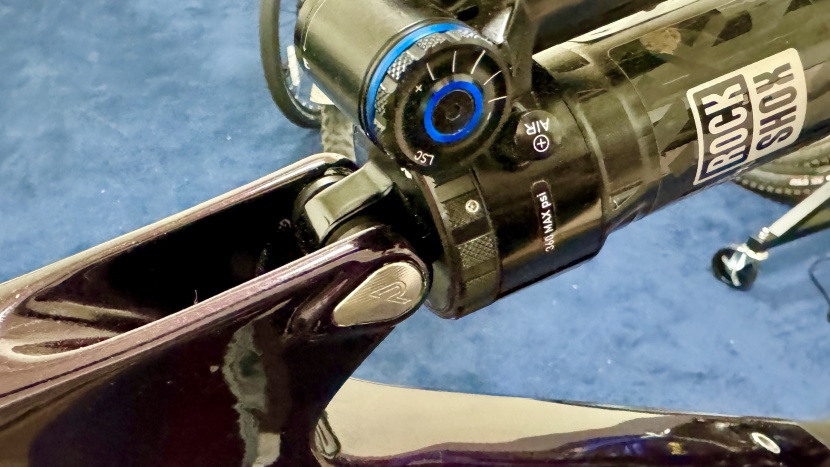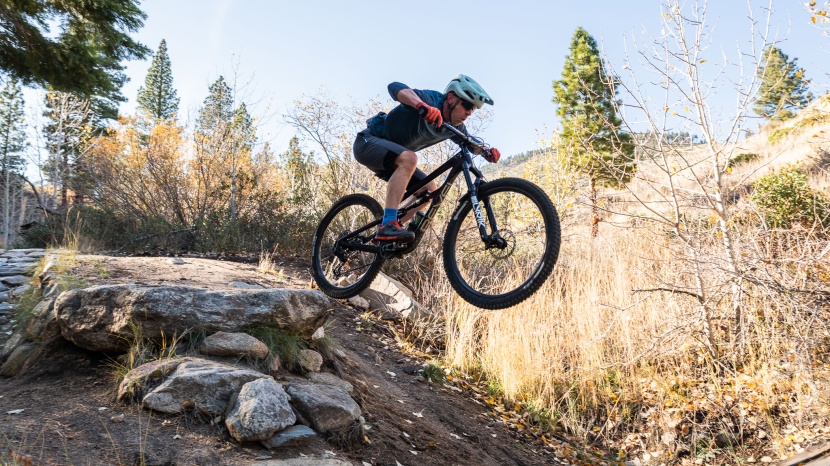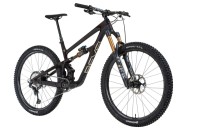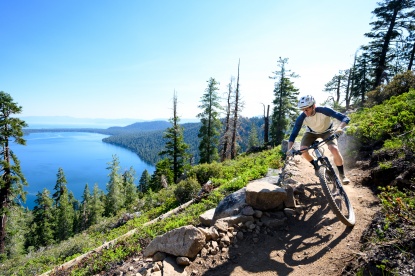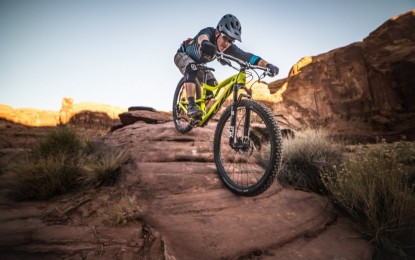
Our Verdict
Our Analysis and Test Results
Based in Carbondale, Colorado, Revel Bikes is carving its path in the world of carbon fiber trail rippers. Founded by a seasoned crew of industry veterans, Revel isn't just building a line of mountain bikes. These guys are creating cutting-edge composite frames and wheels that ride a little bit differently from the rest. At the core of (almost) every Revel, you'll find the Canfield Balance Formula (CBF) suspension. Licensed from the legendary Canfield brothers, this patented design claims to be something of a philosophy. Revel states, “CBF focuses pedaling forces on the sweet spot of the chainring, keeping your energy where it matters most - propelling you forward, not bouncing around.” Read on to find out if it works.
Should I Buy This Bike?
Revel made a splash in 2019 when they showed up with the Rail and Rascal, two bikes sporting an unconventional suspension design. The Rascal was a huge hit but, in some ways, got overshadowed by the progressive trail geometry movement. Over that span of years, there have been a handful of bikes that don't benefit from longer/slacker treatment, and the Rascal is one of them. The Rascal V2 still rocks 130mm of travel with a 140mm fork; we'd probably call it light-duty trail, but this bike is far more capable and playful than the numbers suggest. Looking at its numbers, it looks like a versatile, go-most-anywhere kind of trail bike. Looking over the handlebars, it's a trail-ripping, nudge you to go harder, charge that side hit kind of bike. We'll wax poetic about its ride characteristics and our testing below, but what we really want to highlight is how much fun this bike is; it's nimble handling and poppy suspension encourage all kinds of antics.
Frame Design
The updated 130mm Rascal frame is made of Toray carbon fiber and utilizes the Canfield Balance Formula (CBF) suspension design. CBF is a dual-link suspension design with a one-piece rear triangle attached to the frame using, you guessed it, two linkages. The lower link attaches at the bottom of the seat tube just above the bottom bracket, and the upper link is attached to the front of the seat tube about a third of the way up the tube. The CBF design is based around the Center of Curvature, which is a unique way of understanding suspension forces that look past the Instant Center. The center of curvature is essentially the bike's effective pivot point. The idea is to allow the suspension to function freely, isolated from pedaling or braking forces anywhere in its travel. According to Revel, the CBF focuses the center of curvature in a very finite area on the chain line, pointing the pedaling forces directly where you want them. Ok. At first spin, the suspension feels excellent but doesn't feel radically different than any other twin-link design; the difference feels subtle at best. The frame has a threaded bb, an integrated chain guide, full-length internal cable routing, titanium shock hardware, downtube and chainstay frame protection, and room within the front triangle for a full-size bottle.
The Rascal is available in five frame sizes, Small-XXL. Measuring up our large test bike, we found an effective top tube length of 625mm and reach measured 471mm. Chainstays came in at 436mm with a 65.5-degree head tube angle resulting in a 1,222mm wheelbase length. The effective seat tube angle is 76 degrees, up from 75, which answered our taller testers' biggest gripe with the last-generation Rascal. Notably, the seat tube angle increases on their larger frames meaning taller riders with long legs can get the same benefits as riders on smaller sizes. The bottom bracket is now 10mm higher, and our test bike had a 44mm offset fork instead of the 51mm offset of the last Rascal we tested. The new frame increases lateral stiffness by up to 20% and is 150 grams lighter than the outgoing model. Our test bike tipped the Park Tool scale at 31 lbs and 5 oz setup tubeless and without pedals. The paint job is a contrasting matte/gloss finish with quite possibly the best color name we've ever tested, Pinot Gnar.
Design Highlights
- Carbon Fiber frames
- 29" wheels exclusively
- Canfield Balance Formula (CBF) suspension
- Designed around a 140mm fork
- Fully guided internal cable routing
- Integrated chain guide
- Threaded bottom bracket
- Molded chainstay and downtube protection
- SRAM Universal Derailleur Hanger
- Frame weight is 2810 grams without shock (medium)
Downhill Performance
Of course, the Rascal shreds downhill, but just how shreddy is it? Despite having somewhat conservative-looking numbers, the Rascal rides way beyond what its geometry chart would suggest. Dropping my first playful descent on the Rascal, I was reminded of the Trek Top Fuel, not because of a similarity in geometry, but because both bikes are significantly more capable than other bikes in their category. We wouldn't (and didn't) hesitate to ride the Rascal in places that felt more appropriate for bigger bikes. The bike exudes more confidence than a 130mm bike should; Revel succeeded in creating a playful mid-travel trail bike that is stable and fearless. The CBF suspension design was an absolute highlight, we found the braking performance reminiscent of Trek's ABP rear end. Revel sought to decouple the braking forces from suspension forces, and looking at their anti-rise curve, it seems they succeeded. Small bump compliance was good, but you never felt isolated from the trail. Big hits were a delight experienced through the RockShox Super Deluxe Ultimate shock and Lyrik Ultimate. The Charger 3 damper and ButterCups helped to mute the chatter; the overall suspension feel is sublime. Our test bike was fitted with Revel's thermoset Fusion-Fiber carbon rims laced to Industry Nine Hydra hubs offering 690 points of engagement, this makes accelerating feel almost telepathic. The wheels felt laser-accurate while doing wonders to dampen the beating they were taking; Continental Kryptotal and Xynotal tires provided the traction to really push this bike's limits.
Comparing the Rascal to most other modern, progressive trail bikes, its measurements seem almost unremarkable. There are no wild numbers or angles that make this bike look exotic, but its ride quality had us double-checking the geometry chart. The head tube sits at a static 65.5 and the effective seat tube is 76 degrees, add in a 471mm reach and 618mm stack and I have a pretty solid expectation of what this bike should ride like. Instead, those numbers give us a good spatial description of the bike, but its ride characteristics hint at something more profound. This results in an incredibly versatile trail bike that always feels in its element, even when the trail might indicate otherwise.
The steering feels nimble and precise at slower speeds, yet at blurry speeds, the front end is still remarkably composed. The wheelbase measures 1222mm, putting it on the shorter end of modern trail geometry but keeping this bike nimble in technical terrain. The shorter wheelbase made us concerned that the bike would lose its stability at high speeds, but that simply wasn't the case. The bike is quick to accelerate, dive into a corner, or charge a hard line, but it never loses its playfulness. It feels like the bike seeks out the side hits and assures the rider that its dial goes up to 11.
We've established that the Rascal is solidly in the mid-travel trail bike category, but this bike feels like at least a little more. We scratched our heads about its performance and felt the overriding performance characteristic was its composure. We could attribute some of this to the phenomenal suspension package from RockShox, with ButterCups that dampen the high-frequency, low-amplitude vibrations. Our test build had Revel's RW30 wheel upgrade, which also helped to quell some of that eyeball-vibrating buzz, and it's worth expanding on how amazing and unique these wheels are. The wheels provide incredible dampening, but unlike the ZIpp 3Zero Moto, they feel lively and spry at lower speeds. Made in the USA and 100% recyclable, the thermoplastic wheels use a polymer instead of epoxy, so they're less brittle and more impact-resistant than traditional thermoset carbon wheels. We could write an entire article about the wheels (and soon I will), but if you want to know more, check out the wealth of information on Revel's website.
How does the Canfield Balance Formula (CBF) suspension design compare to others? Pedaling around the parking lot, you'd be forgiven if you thought you were on a DW-Link. We found the suspension more supportive than active in the initial stroke, letting you pop out of corners and get the bike in the air with ease. When pedaling over choppy sections and moderate rock gardens, it was easy to continue to put power into the drivetrain. The rear end feels like it tracks more precisely than a DW-equipped bike with very little wag, even under duress. Go ahead and huck to flat, the bike doesn't lose its composure when pushed to the ground, it's giving the VPP platform a run for its money here. What we found especially impressive was the isolation of braking forces; dragging the rear brake over chunky bits of the trail didn't seem to affect the suspension's sensitivity. The rear end stayed engaged and felt remarkably calm, like its limits were beyond ours. We're hopeful that the CBF suspension design will show up on more bikes in the future.
The XO Transmission build we tested is absolutely the build we would choose when buying, especially with the wheel upgrade. The aforementioned suspension and wheels are top-notch choices, and the Transmission drivetrain is worth every dollar. If you're intent on spending less, the bike can also be had with SRAM's GX Transmission, netting you more grams for fewer dollars.
Climbing Performance
The Rascal is an efficient climber; its pedaling platform and steeper seat tube angle are the main performance drivers. When we tested the original Rascal, taller riders complained that the seat tube felt too slack. Revel solved the issue not only by steepening the seat tube but also by making it progressively steeper on taller models where the rider is more apt to fall behind the rear axle on steeper climbs. The bike climbs mostly the way that the geometry would suggest; it moves swiftly and instantly rewards your input. Having near-instant engagement from the rear hub makes the bike feel eager, almost enthusiastic, to be climbing with you. The head tube angle doesn't hinder low-speed climbing; we found the bike adept at technical climbing and tight situations. At 345mm, the bottom bracket is 10mm higher than the V1 Rascal and relatively high for a modern trail bike, giving the bike a long-legged feeling on rocky climbs. You could pedal through nasty sections with much less chance of a pedal strike.
The Rascal excelled in the hard scramble part of our testing; its ability to maintain traction and isolate suspension feedback from the rider made it a joy to climb. The CBF suspension keeps the rider fairly high in the travel with minimal bob. We tested the shock lockout, but outside of a standing road climb, we found little reason to use it. We spend some of our testing hours with Garmin Rally power meter pedals and a Garmin 830 to monitor and control our wattage input. Attempting to hold a constant level of power input, we get an idea of the bike's efficiency. This is an imperfect test with variable trail conditions, weather, and human error, but we discovered that PR rhymes with Pinot Gnar. Tight switchbacks were no match for the shorter wheelbase, rapid engagement hub, and grippy tread.
The XO Transmission drivetrain is a huge leap in technology and is a delight to ride. Shifting under maximum load feels expected, and every shift is perfect; couple that with a 520% range and no cables, it comes with our highest recommendation. The wireless AXS pod requires very little throw from your thumb, leaving your digits more securely wrapped around the grips.
Did we love absolutely everything about this bike? It might seem like it, but no, we always have our gripes. Our complaints about this bike are all minor, but here they are. There is an adage about bike weight that is, the more you spend, the less you get and for $9199, we felt the bike should weigh less than the 31lb 5oz that it registered on our scale. With that said, the other old adage is that a good bike weighs what it ought to, and if the extra ounces are the price for this performance, so be it. Riders wanting to lighten up their ride won't have many levers to pull. We found the SDG Radar saddle less comfortable than most, and it uses excessive Kevlar fabric at the edges that didn't interface well with our shorts. Below the saddle, we found a little more side-to-side knock in the Bike Yoke Revive dropper than normal; it's lightweight and reliable but distracted from the overall feeling of high quality. This Rascal doesn't have adjustable geometry or in-frame storage, features that we appreciate and are becoming more common on mountain bikes. We understand that not every bike should have adjustable geometry; just because it's a feature that would seem to enhance versatility, there is what we can only describe as harmony to this bike that we'd hate to disrupt.
Photo Tour
Value
Mountain bikes are expensive, and really nice mountain bikes are really expensive. This is a hard fact to avoid, but within the realm of pricey mountain bikes, the Rascal with XO Transmission build with RW30 wheels is priced fairly. The build kit doesn't skimp on a particular area or sneak a lower-end part in to save some dollars. Performance-oriented riders are going to appreciate the way Revel specs this bike. Revel is (for now) a small boutique manufacturer assembling all of their bikes in Colorado. You can probably find a better deal from a larger company that benefits from the economy of scale, but that won't put you on a Rascal. The frame comes with a lifetime warranty covering defects in materials and workmanship. Revel is so confident that you'll love this bike; it comes with Revel's 30-day no-questions-asked return policy. Get the wrong size or simply don't love the bike like you expect, and they'll make it right. We're starting to see more companies offer this level of service, and it does wonders to mitigate buyer's remorse.
Ease of Maintenance
This can be a hard metric to score accurately as we only ride the bike for a couple of months, but as a lifelong mechanic and bicycle industry wonk, we can make some conjectures. We disassembled the frame to get a good look at the inner workings of its suspension design. Solid hardware, tight tolerances, and a fair bit of overlap support the five main pivots. Pulling the bike apart and reassembling it took us about the same time as a VPP suspension, and cable routing is a breeze. There are few reasons for concern; maintaining this bike should be no harder than average.
Conclusion
In some ways, this suspension design gives us the best attributes of many designs. The bike is agile, stable, and confidence-inspiring. It's also poppy, playful, and down for anything. We were hard-pressed to find attributes of this bike that we didn't love, and above all, this bike became a go-to whip while in our stables, even when the ride called for a bit more bike. Across our performance metrics, the Rascal shined but seriously excelled in the fun department. The Revel Rascal delivers crisp and responsive handling in most situations but never feels outgunned in rough, steep, and aggressive terrain. We highly recommend advanced riders and those with experience on multiple suspension platforms to check out the Rascal. It's versatile and user-friendly enough to be your first mountain bike, but that sets the performance bar pretty high. While we're confident that you'll like this bike as much as we do, Revel actually guarantees it.
Other Versions
Revel is offering the new Rascal in five sizes and three build kits ranging in price from $4,999 for the SRAM 90 build to $10,999 for the XX Transmission build. Wanna start with a frame and build your own Rascal? Frame prices start at $2999
| Awards | Best Mid-Travel Trail Bike |
|---|---|
| Price | $6,899 List |
Overall Score  |
|
| Star Rating | |
| Bottom Line | A versatile mid-travel 29er that leads with its suspension design and follows with exceptional build quality |
| Pros | Lively ride, Sublime suspension, Phenomenal wheels |
| Cons | Costly, No frame storage, Wiggly dropper post |
| Rating Categories | Revel Rascal XO Tran... |
| Fun Factor (25%) | |
| Downhill Performance (35%) | |
| Climbing Performance (35%) | |
| Ease of Maintenance (5%) | |
| Specifications | Revel Rascal XO Tran... |
| Wheel size | 29" |
| Suspension & Travel | CBF (Canfield Balance Formula) - 130mm |
| Measured Weight (w/o pedals) | 31 lbs 5 oz (Large) |
| Fork | RockShox Lyrik Ultimate, 140mm |
| Shock | RockShox Super Deluxe Ultimate |
| Frame Material | Carbon Fiber |
| Frame Size | Large |
| Frame Settings | N/A |
| Available Sizes | S-XXL |
| Wheelset | Revel RW30 Fusion-Fiber |
| Front Tire | Continental Kryptotal 2.4 |
| Rear Tire | Continental Xynotal 2.4 |
| Shifters | SRAM AXS Pod |
| Rear Derailleur | SRAM XO Transmission |
| Crankset | SRAM XO Transmission 170mm 32T |
| Saddle | SDG Radar Lux Alloy |
| Seatpost | Bike Yoke REVIVE 185mm |
| Handlebar | Trail One Crocket Carbon 800mm 20mm rise |
| Stem | Trail One The Viking Stem 40mm |
| Brakes | SRAM Code RSC |
| Measured Effective Top Tube (mm) | 625 |
| Measured Reach (mm) | 471 |
| Measured Head Tube Angle | 65.5-degrees |
| Measured Seat Tube Angle | 76-degrees |
| Measured Bottom Bracket Height (mm) | 345 |
| Measured Wheelbase (mm) | 1222 |
| Measured Chain Stay Length (mm) | 436 |
| Warranty | Lifetime |


